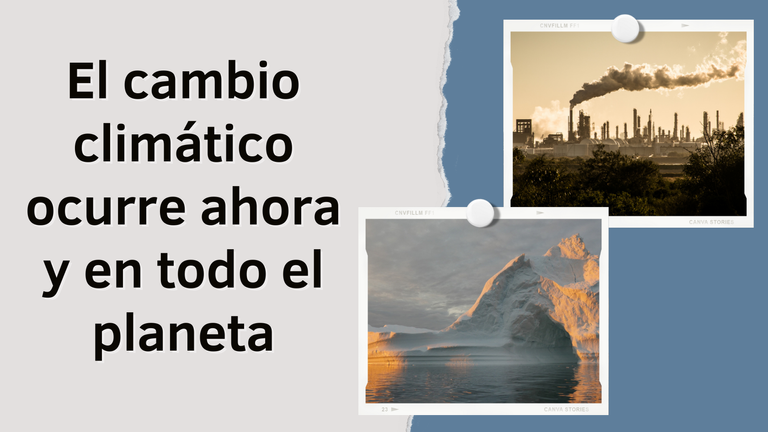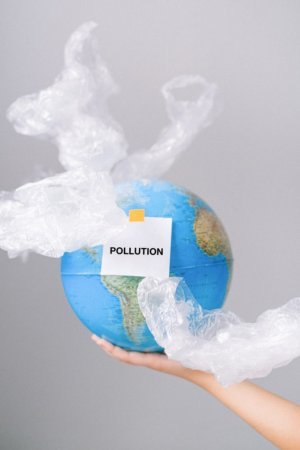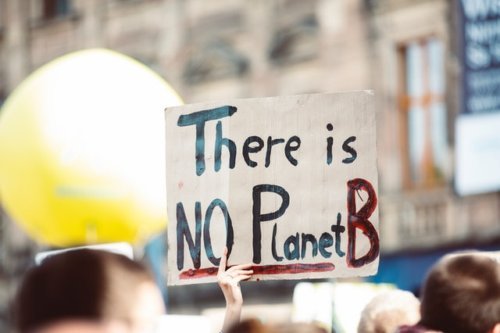
Expertos de todo el mundo aseguran, con más del 95 % de seguridad, que los seres humanos son los principales responsables del fenómeno.
El Panel Intergubernamental sobre Cambio Climático (IPCC), conformado por un grupo de expertos de 195 países, en su Quinto Informe de Evaluación (AR5), determinó que el cambio climático ocurre en este preciso instante y el ser humano es el responsable. Dicho informe es el resultado del estudio y análisis de los integrantes de IPCC sobre las investigaciones de miles de científicos de todo el mundo, que contribuyen voluntariamente con su trabajo a la labor del panel.
El informe reporta que existe una certeza por parte de los científicos de más del 95 % en relación a la responsabilidad del ser humano sobre las causas del calentamiento global desde 1950. Lo cual ha traído como consecuencia una aceleración en el derretimiento de los glaciares, las capas de hielo y en el incremento del nivel de los océanos, así como en la acidificación de los mismos.
Nunca antes el planeta había afrontado cambios similares de manera tan drástica y veloz. Los expertos afirma que el período comprendido entre 1983 y 2012 constituye los treinta años más calurosos en los últimos catorce siglos de historia de la humanidad. Igualmente, desde 1993 y 2012, los océanos han aumentado sus niveles al doble de velocidad; aunado a esto, la acidificación de los mares, debido a la actividad industrial, trae consecuencias catastróficas para los ecosistemas marinos y todos los asentamientos humanos que dependen de los peces de los arrecífes para sus subsistencia.
 Fuente
Fuente
Experts from all over the world assure, with more than 95% certainty, that human beings are mainly responsible for the phenomenon. The Intergovernmental Panel on Climate Change (IPCC), formed by a group of experts from 195 countries, in its Fifth Assessment Report (AR5), determined that climate change is occurring at this very moment and that human beings are responsible for it. This report is the result of the IPCC members' study and analysis of the research of thousands of scientists from all over the world, who voluntarily contribute their work to the panel's work. The report reports that there is a certainty on the part of the scientists of more than 95 % in relation to the responsibility of the human being on the causes of global warming since 1950. This has resulted in accelerated melting of glaciers, ice sheets and rising ocean levels, as well as ocean acidification. Never before has the planet faced similar changes in such a drastic and rapid manner. Experts affirm that the period between 1983 and 2012 constitutes the thirty warmest years in the last fourteen centuries of human history. Likewise, between 1993 and 2012, the oceans have increased their levels at twice the rate; in addition, the acidification of the seas, due to industrial activity, has catastrophic consequences for marine ecosystems and all human settlements that depend on reef fish for their livelihoods. |

Presente y futuro
El cambio climático ocurre ahora y en todo el planeta. No existe región que se pueda considerar a salvo de sus efectos; sin embargo, las poblaciones menos favorecidas económicamente y con condiciones de vida precarias, son las más vulnerables. De igual manera, el impacto de este fenómeno amenaza la estabilidad de otros tantos sistemas necesarios para el desarrollo humano. Así, debido al cambio climático, se verán afectados los sistemas de salud, económicos, poblacionales, agrícolas, mercados, entre otros; trastocando, principalmente, la vida y oportunidades de los países en vías de desarrollo.
En el caso de América Central y del Sur, este quinto informe del IPCC, destaca como principales riesgos la disponibilidad de agua en las regiones semiáridas, deslizamientos en zonas rurales y urbanas debido a las lluvias extremas, inundaciones, menor producción de alimentos y calidad alimentaria; asimismo, en materia sanitaria, los efectos del cambio climática representan un incremento en la región de la propagación de enfermedades transmitidas por vectores.
Todo esto vislumbra un escenario nada alentador. El cambio climático amenaza con ralentizar las oportunidades de desarrollo de regiones enteras, haciendo imposible la disminuición de la pobreza y el mantenimiento de condiciones sanitarias idóneas. El desplazamiento de grandes cantidades de personas en busca de mejoras en su calidad de vida, debido a inundaciones o zonas económicamente improductivas, podría desconfigurar radicalmente el funcionamiento de la sociedad, creando situaciones insostenibles y de alto riesgo.
| Present and future Climate change is happening now and all over the planet. There is no region that can be considered safe from its effects; however, the least economically favored populations with precarious living conditions are the most vulnerable. Similarly, the impact of this phenomenon threatens the stability of many other systems necessary for human development. Thus, due to climate change, health, economic, population, agricultural and market systems, among others, will be affected, mainly disrupting the lives and opportunities of developing countries. In the case of Central and South America, this fifth IPCC report highlights as the main risks the availability of water in semi-arid regions, landslides in rural and urban areas due to extreme rainfall, floods, lower food production and food quality; also, in terms of health, the effects of climate change represent an increase in the spread of vector-borne diseases in the region. All this points to a bleak scenario. Climate change threatens to slow down the development opportunities of entire regions, making it impossible to reduce poverty and maintain ideal sanitary conditions. The displacement of large numbers of people in search of a better quality of life, due to flooding or economically unproductive areas, could radically disrupt the functioning of society, creating unsustainable and high-risk situations. |

Hora de actuar
La intención final del Panel Intergubernamental sobre Cambio Climático y su quinto informe de evaluación es evaluar “las opciones disponibles a diferentes niveles de gobierno y en diferentes sectores económicos” y hacerlas accesibles a todos los sectores, principalmente a aquellos con responsabilidad en las tomas de decisiones e implementación de políticas en las regiones.
 Fuente
Fuente
En este sentido, el reporte afirma que un incremento igual o mayor a 2° C en los próximos ochenta años, significaría traspasar el umbral de peligro que haría incontrolable los efectos y consecuencias del cambio climático. Para tal fin se necesita de un esfuerzo masivo y a escala global, donde tanto los países desarrollados como las economías emergentes, reduzcan sus emisiones en un 50 % (de los niveles de 2010) para el año 2030. Otra medida significativa, para el mismo período, la constituye la disminución de las inversiones en combustibles fósiles en 30 mil millones de dólares por año, así como también la duplicación de la inversión en energías renovables.
Retrasar la toma de decisiones y aplicación de medidas efectivas para evitar un cambio climático extremo puede resultar catastrófico para la vida tal cual como se conoce hoy en día, por tal motivo los expertos han denominado estas próximas décadas hasta el año 2040 como la era de la “responsabilidad climática”.
| Time to act The ultimate intention of the Intergovernmental Panel on Climate Change and its fifth assessment report is to evaluate "the options available at different levels of government and in different economic sectors" and make them accessible to all sectors, mainly those with responsibility for decision-making and policy implementation in the regions. In this sense, the report states that an increase equal to or greater than 2°C in the next 80 years would mean crossing the danger threshold that would make the effects and consequences of climate change uncontrollable. To this end, a massive effort is needed on a global scale, where both developed countries and emerging economies reduce their emissions by 50% (from 2010 levels) by 2030. Another significant measure for the same period is the reduction of investments in fossil fuels by US$30 billion per year, as well as the doubling of investment in renewable energies. Delaying decisions and implementing effective measures to avoid extreme climate change could prove catastrophic for life as we know it today, which is why experts have dubbed the coming decades up to 2040 as the era of "climate responsibility". |


Quinto Informe de Evaluación de El Panel Intergubernamental sobre Cambio Climático (IPCC)
Traducción realizada con DeepL Translate
Imagen de agradecimiento y separadores hechos en Canva
Congratulations @rcardonacoa! You have completed the following achievement on the Hive blockchain and have been rewarded with new badge(s):
Your next target is to reach 100 upvotes.
You can view your badges on your board and compare yourself to others in the Ranking
If you no longer want to receive notifications, reply to this comment with the word
STOPTo support your work, I also upvoted your post!
Check out the last post from @hivebuzz:
Support the HiveBuzz project. Vote for our proposal!